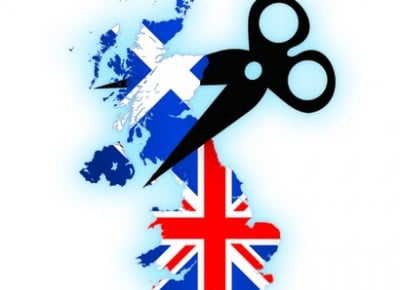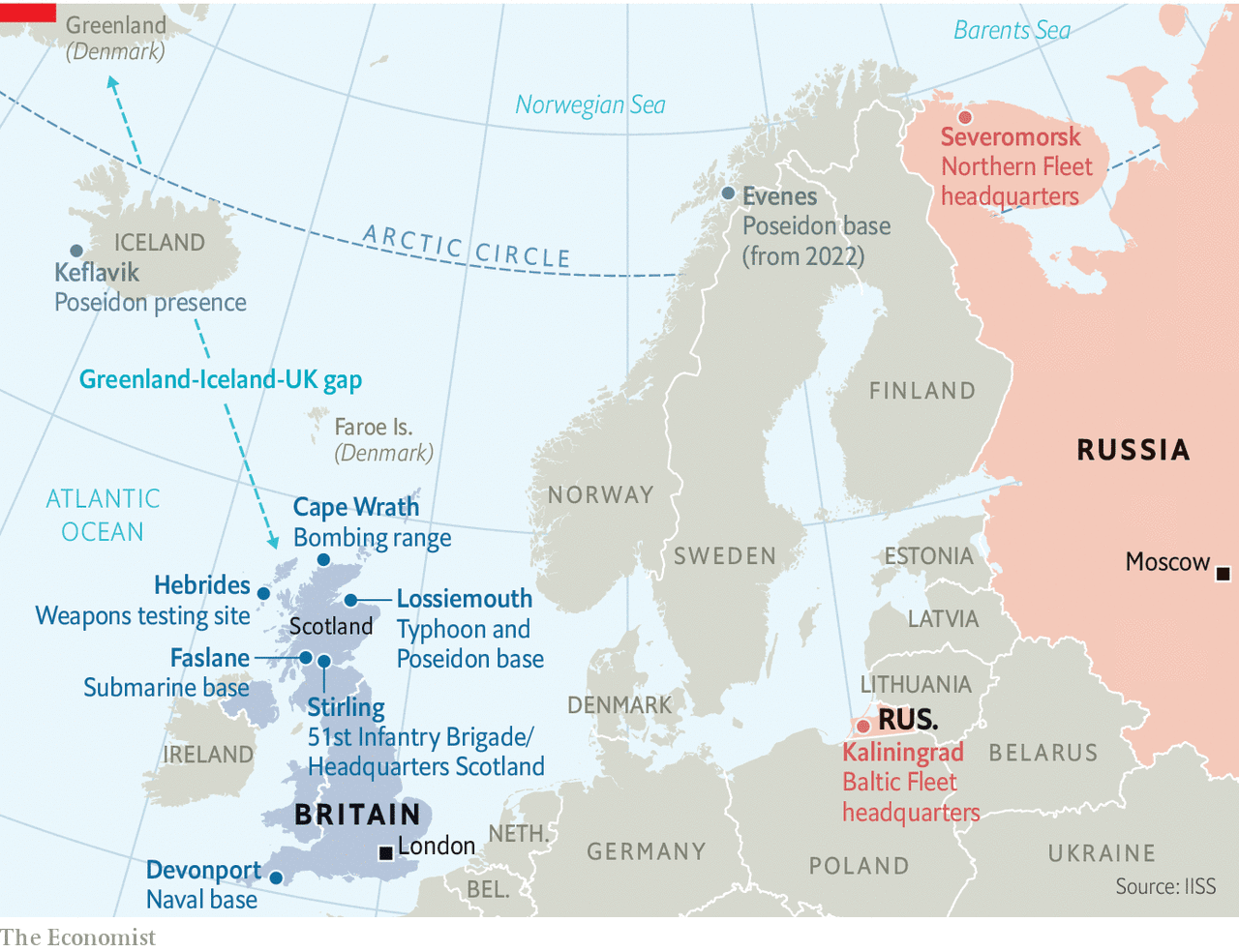How the ‘Russian Threat’ Is Being Used to Scare Scots Away from Independence

UK Prime Minister Boris Johnson has – albeit inadvertently – single-handedly done his utmost to encourage the Scottish independence movement since he took office, even last week causing more offence north of the border with his ‘devolution was a disaster’ comments. But while the PM himself may be somewhat oblivious to cracks that are emerging in the Union, others are less indifferent. Indeed, the British military and security establishment is getting increasingly flustered about the fact that, with every day that passes, Scotland is edging closer to independence.
An article in The Economist this month aptly summed up this newfound worry. It’s an extraordinary piece, containing rhetoric and ideas which plunge us right back into the depths of the Cold War. To summarise, it asserts that England needs Scotland to defend itself from Russia. The scenarios presented wouldn’t be out of place in a James Bond plot. Allegedly, the ‘threat from Russia has grown’ and because of Scotland’s northerly position it’s in an ideal position to ‘intercept Russian bombers from Murmansk’. Not just that, but the west coast of Scotland provides ‘the simplest and safest way’ for British submarines to take ‘nuclear missiles…over the Arctic to Russia’. (I kid you not, it talks about nuclear missiles.)
It also describes how the Scottish Highlands and Islands have been used for generations for the testing of various weaponry. Apparently the UK Ministry of Defence (MOD) uses 115,000 square kilometres of airspace over the Hebrides archipelago for testing missile defence systems. And the UK’s only naval firing range is in Cape Wrath. So it’s clear that Scotland provides the ideal, remote, playground for the British army. Conveniently, the article fails to mention the negative side of the MOD’s experimentation, such as the anthrax testing on Gruinard island in the 1940s which led to its contamination for decades; or the presence of nuclear weapons at Faslane, which the majority of Scots oppose.
There are so many things to take issue with in this piece it’s hard to know where to begin. First of all there’s the implication that Russia poses a real military threat to Britain. As if the Russian Federation is the least bit interested in combat with our island. What would it have to gain? More territory? Hardly likely for the largest country in the world. There is of course the widely held view in the west that Putin is about to invade the Baltic states at any minute. But this view is devoid of any logical basis. As eminent scholar Professor Stephen Cohen (now sadly deceased) noted in his book ‘War with Russia’ in 2019, Vladimir Putin tends to react to events rather than initiate them. Instances of so-called ‘Russian aggression’ are in fact more acts of self-defence. The ‘invasion of Ukraine’ is cited in The Economist article as being the starting point for the growth of the ‘Russian threat’. Yet this really is a twisted version of events as it ignores the role played by western regime change efforts in initiating what is an ongoing civil war in Ukraine. As Cohen wrote:
‘The 2014 crisis and subsequent proxy war in Ukraine resulted from the longstanding effort to bring that country, despite these large regions’ shared civilization with Russia, into NATO.’
Cohen also cites the Russian conflict with Georgia in 2008 as another example of western meddling, as Saakashvili, the Georgian leader who mounted his attack on South Ossetia, was backed by the US. In both these conflicts, frequently cited as examples of Russian aggression, the only intervention Russia has made has been to defend the rights of ethnic Russians living in these former Soviet regions.
The reality is, that if any real war was to break out between ourselves and Russia, and as is suggested, nuclear missiles were used, our whole island would be swiftly decimated. In 2019 Russia unveiled its new Avangard supersonic nuclear missile, the first of its kind in the world. You don’t want to play games with a country that has this kind of technology. Not only that, but why on earth would Russia want to engage in military conflict of this kind? To suggest as much is to completely misunderstand Russia’s geopolitical strategy. One cannot help but think that once again Russia has become a useful scapegoat in other peoples’ political agendas.
There is no doubt of course that an independent Scotland would have a completely different approach to diplomacy and defence from the United Kingdom, which reflects the nation’s age-old internationalist outlook. In a proposal drawn up by think-tank Commonweal back in 2014, it is suggested that an independent ‘Scotland would be an international actor of a completely different character to the UK’. The paper proposes that Scotland would aim to reduce defence spending and abandon its nuclear weapons, promoting instead a “distinctive, Scottish ‘international brand’ which emphasizes cooperation, dialogue, and peace”. The country could aim to be a ‘middle-power’ peacekeeper like Canada, Norway or Ireland. The role, it is said, would contrast greatly with Great Britain’s traditional one of ‘projecting power’ abroad which has (it is politely expressed) ‘invited international criticism due to the damage that has sometimes been visited on the ‘recipients’ of this projected power.’ In other words, Scotland would not be looking to follow the same interventionist and expansionist path which has been tread by the United Kingdom in times past.
Such a divergence between Scotland and England over defence will of course concern London. Currently there is no indication that Scotland shares English fears of an imminent Russian invasion, and any reduction on defense in the northern part of the British isles will likely be opposed by the English military. However, there is also another objective to the UK government raising concerns in this area. As the desire for independence increases in Scotland, so will the amount of propaganda produced by the UK government as to why it should remain in the union. By exaggerating the threat from Russia, the English can persuade Scots of the need to retain the Union. What seems obvious in any case, is that even in this one area of defence, England needs Scotland more than the other way around.
*
Note to readers: please click the share buttons above or below. Forward this article to your email lists. Crosspost on your blog site, internet forums. etc.
This article was originally published on InfoBrics.
Johanna Ross is a journalist based in Edinburgh, Scotland.
Credits to the owner of the featured image


